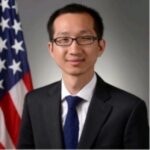As the Biden administration begins to articulate its Indo-Pacific strategy and outline its engagement plans with Taiwan, the US media and some commentators have focused on what they call “foreign policy traps” left by the previous administration. One of the mentioned so-called traps is then-Secretary of State Pompeo’s order to lift “self-imposed restrictions” on US-Taiwan engagement, with traps defined as “moves […] meant to lay a trap for Mr. Biden, forcing him to either pay a domestic political cost if he unwinds them or to sour relations with Beijing if he does not.” However, given what we already know from statements made by the Biden foreign policy team, this is an incorrect understanding of how the administration views the prospect of either US-PRC relations or US-Taiwan engagement. Instead, a better way of understanding this may be through the concept of good cop, bad cop.
Stated Administration’s Views of the PRC and Taiwan
In the lead-up to the inauguration, a considerable number of Taiwan observers expressed fear that a Biden administration would seek a reversion to Obama-era discussion of a US-PRC “G-2” at the expense of allies and partners. These fears were in part sparked by then-candidate Biden’s May 2019 remarks that the PRC had serious corruption issues and was thus “not competition for us.” Also, a number of Taiwan commentators have noted that then-Senator Biden wrote a May 2001 op-ed emphasizing the importance of strategic ambiguity.
However, there are multiple indications that Biden’s views have changed significantly since then. The first indication that then-presidential candidate Biden had re-thought his earlier comments was his July 2019 speech emphasizing the need to “get tough on China.” This was followed by a May 2020 Foreign Affairs article, in which he reiterated his intention to compete with the PRC by leading a united front with US allies and partners. Finally, in September 2020, he committed to convene a “Summit of Democracies” within the first year of his presidency, with the summit being the heart of his China policy.
The second indication is Biden’s Cabinet picks. During the confirmation hearings for the Secretary of State (Antony Blinken) and the Secretary of Defense (Lloyd Austin), both nominees expressed views on the US-PRC relationship that would not have been out of sync with the previous administration.
At his hearing, Blinken stated:
As we look at China, there is no doubt that it poses the most significant challenge of any nation-state to the US in terms of our interests, the interests of the American people.
Building on this, Austin emphasized:
Globally I understand that Asia must be the focus of our effort, and I see China in particular as a pacing challenge for the department […] I’ll put a laser-like focus on developing the right capabilities, plans, operational concepts, that’ll ensure that we maintain a competitive edge.
This is not limited to the traditional national-security Cabinet members, either. At the confirmation hearing for the US Treasury Secretary, Biden’s nominee Janet Yellen was notable for her surprisingly hawkish comments:
China is clearly our most important strategic competitor […] We need to take on China’s abusive, unfair, and illegal practices […] And these practices, including China’s low labor and environmental standards, are practices that we are prepared to use the full array of tools to address.
On a similar note, Blinken and US Ambassador to the UN nominee Linda Thomas-Greenfield have both commented favorably on US-Taiwan ties. For instance, Blinken stated:
I want to […] make sure that we’re acting pursuant to the mandate in the (Taiwan Assurance) act that looks at creating more space for contacts.
Similarly, Thomas-Greenfield asserted:
Taiwan is one of the strongest democracies in the region. We need to support them as a democracy and stand by them as a democracy, and provide them the security that they need to push against any efforts by the Chinese to compromise their security.
The third indication is through the maxim of personnel is policy. Below the Cabinet-level, the administration has nominated a number of national security experts who have long championed competition with the PRC and expanded engagement with Taiwan. Examples of this include:
- Kurt Campbell, nominated as National Security Council (NSC) Indo-Pacific Coordinator (“Asia Czar”). Over the last few years, he has written a number of articles emphasizing competition, including “The China Reckoning,” arguing that the Trump administration rightly questioned previous assumptions of US engagement with the PRC, as well as “How America Can Shore Up the Asian Order” and “Competition Without Catastrophe,” both focusing on how the US can empower Indo-Pacific partners to sustainably compete.
- Rush Doshi, nominated as the NSC Senior Director for China. He has written extensively on PRC information warfare against Taiwan and lessons learned from Taiwan reshoring and supply chain diversification.
- Ely Ratner, nominated as special China Advisor to the Secretary of Defense (and likely later to be nominated as Assistant Secretary of Defense for Indo-Pacific Security Affairs). He co-wrote the above “China Reckoning” and also co-wrote a Washington Post op-ed on building flexible “coalitions of the willing” to support Taiwan.
This is by no means a complete list of senior Biden nominees and officials who hold these views. Other significant figures include US Trade Representative nominee, Katherine Tai, noted for her effectiveness in forming global coalitions against PRC trade abuses; NSC Senior Director for China Laura Rosenberger, who has written extensively on the role of democratic values against authoritarian competition; NSC Senior Director for Technology and National Security appointee Tarun Chhabra, who wrote about the dangers of technology being used in conjunction with the PRC’s “supple authoritarianism;” NSC Coordinator for Democracy and Human Rights Shanthi Kalathil, who testified about the PRC’s use of AI in repression and global ideological competition.
In short, there will be continuity in the whole-of-government strategy of competition against the PRC and support for Taiwan.
Good Cop, Bad Cop
Given this broad consensus, the concept of “foreign policy traps” does not apply here. Instead of undoing the actions of the Trump administration, as the PRC is clearly hoping, there are indications that the Biden administration will pocket those actions as the gains of the bad cop. As the good cop, they can accurately state that their approach avoids surprise and public loss of face to Beijing, all while applying a more methodological, steady pressure behind the scenes to build on those previous actions. For instance, the administration will likely not surprise Beijing with new broad, unilateral tariffs, but will instead continue US tariffs while supplementing this with a long-term, multilateral effort to selectively decouple in key technological fields. As a result, Taiwan’s tech industries will likely be an economic winner.
Similarly, on the broader scale of overall Taiwan engagement, the administration will likely shift away from the routine use of flashy but arguably low-gain announcements that invite PRC retaliation. Under the rubric of low-publicity, high-gain policies, there are several potential areas of engagement which would greatly assist Taiwan in improving its economic, diplomatic, and military resiliency:
1. Expand the American Institute in Taiwan (AIT).
There was significant media attention in the fall of 2018 with the revelation that AIT was requesting US Marines to guard the compound. While this move had symbolic power, on a practical day-to-day basis, a quiet expansion of AIT staffing would have a far stronger effect. Increased staffing would allow for improved US-Taiwan engagement bandwidth on everything from commercial ties, collaboration against PRC information/political warfare, medical and cultural exchanges, and security cooperation.
2. Move beyond the US-Taiwan free trade agreement (FTA) discussion.
The US and Taiwan have been talking on and off about the prospect of an FTA for years now, culminating with Taiwan President Tsai Ing-wen (蔡英文) taking significant domestic political heat over her decision to ease restrictions on the import of US pork and beef. Unfortunately, a deal is unlikely to occur in the near-future due to prevailing focus on US domestic priorities. As such, a single-track focus on an FTA would not be useful for Taiwan, as it risks political fissures that the PRC could use to weaken the US-Taiwan partnership. Instead, both the US and Taiwan should look at the upcoming Summit of Democracies to highlight the Taiwanese economy’s critical ability to provide supply chain diversification for fellow democracies. This would improve the economic resilience of the US as well as other partners and allies from PRC economic pressure. It would also allow Taiwan to shift manufacturing from the PRC, reducing the vulnerabilities Taiwan faces from CCP political warfare against Taishang (臺商, Taiwanese businesspeople working in China).
3. Regularize and develop US-Taiwan security cooperation beyond platform acquisition.
Under the Trump administration, US Foreign Military Sales (FMS) to Taiwan shot up dramatically: at USD $11.77 billion, Taiwan was the top US FMS partner for 2020. Given the convoluted process needed for FMS approval to Taiwan, though, there is a “feast or famine” approach to Taiwan acquisitions. This is problematic in multiple ways: arms sales tend to be packaged into huge amounts for one-time approval, engendering significant PRC responses; the use of fiscally disruptive special budgeting results in significant domestic Taiwan political debate; and long lead-times for approvals on both sides badly disrupt already lengthy acquisition cycles. Regularizing the FMS process for Taiwan would reduce these disruptions. Even more importantly, though, increased security cooperation in the form of training and coordination would be highly helpful for Taiwan as it seeks to integrate its new platforms—all while the PRC steadily raises operational pressures. Multilateral collaboration would be a relatively cheap method to address a common problem across multiple Pacific nations: Japan, the US, Vietnam, and the Philippines all suffer from some form of PRC salami-slicing, with responses ranging from insufficient to unsustainable.
Conclusion
Given the current state of US domestic politics, the bipartisan accord on both US-PRC competition and US engagement with Taiwan is remarkable. The Biden administration will likely continue many of the general policies of the Trump administration vis-à-vis the PRC and Taiwan. To the extent that there will be differences, they will likely be tactical rather than strategic in nature. There is one major exception to this: the Biden administration will likely employ a good cop, bad cop methodology to manage US-PRC competition, which will present the PRC with a less openly confrontational, more strategically predictable competition in exchange for greater diplomatic space for the US to expand its relationships with allies and partners—including, and especially, Taiwan.
The main point: The Biden administration, given its statements and nominations, will probably continue the Trump administration’s policy of strategic competition against the PRC. The Biden administration will likely use a good cop, bad cop approach to manage US-PRC competition, while attempting to increase American power and leverage by expanding ties with allies and partners, including Taiwan.



